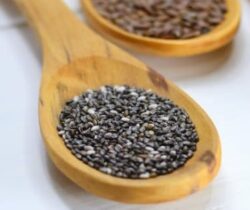Diabetes and heart disease are significantly connected.
The harmful impact of high blood glucose levels on cardiovascular health means that people living with diabetes have a higher chance of developing heart disease and stroke than people who don’t.
People with diabetes are also more likely to have other health problems that can cause heart disease, such as high blood pressure, high cholesterol and inflammation.
In this post, we’ll take a look at diabetes, heart disease and stroke. Then we’ll examine the lifestyle changes that you can make to reduce your risk.
Diabetes and heart disease
Diabetes
Diabetes is caused by hyperglycaemia, a condition where there is too much glucose in the blood. This happens either because the body is not producing enough insulin, the hormone that controls blood glucose levels, or because it is not able to use the insulin effectively.
There are three types of diabetes:
- Type 1, where the pancreas doesn’t produce any insulin.
- Type 2, where the pancreas doesn’t produce enough insulin and/or the insulin doesn’t work well.
- Gestational diabetes, where diabetes develops during pregnancy.
85–90% of people with diabetes have type 2 diabetes.
Types 1 and 2 can both damage the heart, but it is important to know that people with diabetes can live well too.
Heart disease and stroke
The most common type of heart disease is coronary heart disease (CHD). It is the leading cause of death in Australia.
Coronary heart disease is where the major blood vessels (veins and arteries) supplying the heart are narrowed or blocked by a build-up of fatty substances. This process, which is called atherosclerosis, affects the heart’s blood and oxygen supply.
This narrowing of the major blood vessels can lead to serious complications such as heart attack or stroke.
- Heart attack is where a coronary artery becomes completely blocked, reducing blood flow to those tissues of the heart muscle affected by the blockage, leading to potentially significant damage to them.
- Stroke is where the blood supply to the brain is interrupted by a blocked or a burst artery. When this causes brain cells to be deprived of oxygen, they die and the affected area may be permanently damaged.
Understanding the Link: How Diabetes Increases Risk of Heart Disease and Stroke
People living with diabetes have a higher chance of developing heart disease and stroke than people who don’t. This is mainly due to the effect of high blood glucose levels on heart health.
Another link is that people with diabetes are more likely to have heart failure, where the heart is unable to pump blood efficiently. They are also more likely to have other health problems that can cause heart disease, such as high blood pressure, high cholesterol and inflammation.
- High blood pressure (hypertension)—long-term high blood pressure can damage your blood vessels, as can elevated blood glucose. When the blood vessels are damaged, atherosclerosis is more likely. Having high blood pressure and diabetes can greatly increase your risk of heart disease.
- High cholesterol—if your cholesterol is too high, the extra fat in your blood sticks to the walls of your blood vessels. Over time, this fat hardens into what is known as plaque, causing atherosclerosis.
- Inflammation—inflammation is a natural and healthy response to our body tissue being damaged. But when it goes out of control, which can occur because of hyperglycaemia, it actually damages body tissue. Inflammation not only encourages the growth of plaques in the arteries but also loosens them. This causes blood clots that can lead to heart attacks and strokes. Inflammation can also damage the heart muscle itself.
Managing Diabetes: Tips for Managing Blood Sugar and Reducing Risk of Heart Disease
One positive link between heart disease and diabetes is that both conditions can be prevented, and with support, managed to reduce risk of complications and to live well.
Healthy habits such as not smoking, managing weight, exercising more and following a healthier diet can all contribute to better management of diabetes and heart health. They may also prevent inflammation.
Stop smoking
If you are thinking about quitting smoking, we recommend that you:
- call Quitline on 131 848 or visit the Quitline website
- talk to your doctor or chemist about additional options.
Follow a healthy diet
A healthy diet includes fresh fruits and vegetables, lean meats and whole grains. To stick to a healthy diet try to:
- eat less junk food such as chips, biscuits and fast food
- drink water and avoid sugary drinks.
- if you drink alcohol, try to reduce the amount.
Aim for a healthy weight
Weight loss—or more specifically fat loss—can assist in lowering blood sugar levels, inflammation, blood pressure and cholesterol. However, these health benefits are more usually gained by making the following healthy changes to our lifestyle:
- changing the quality of our diet
- changing our activity levels
- managing our energy levels, sleep and stress.
By working on the above, we can make important and positive changes to our heart health and decrease our risk of developing diabetes, whether we lose weight or not.
Get active
Aim to do at least 30 minutes of ‘moderate intensity’ physical activity most days. Moderate intensity activity could be fast walking, swimming or bike riding. Simply walking more is a great way of being active, and it may lower your BMI and improve your cardiovascular health. You can also choose to do three shorter bursts of activity for 10–15 minutes at a time. Physical activity also helps control blood sugar levels and lowers your risk of heart disease.
Manage stress
Stress can raise your blood pressure and can also lead to unhealthy behaviour such as drinking too much alcohol or overeating. The lifestyle changes you can make to reduce stress include:
- exercise regularly
- work out the types of situations that make you stressed and, if you can, avoid them
- give yourself some time to relax each day
- socialise and have fun
- eat well
- have a good sleep schedule.
Take prescribed medications
Your doctor may prescribe medicines that can help keep your blood sugar, blood pressure, cholesterol and triglycerides close to your target levels. If so, make sure to take them as prescribed.
The importance of regular check-ups: monitoring diabetes and heart health
Check-ups are vital for preventing or detecting medical problems, so it’s a good idea to have them regularly, even if you feel well. Your doctor will be able to recommend the health checks that you need as well as how frequently you should have them. Generally, if you are over 45 or have a family history of heart disease, you should have a heart health check every year.
Health checks for heart disease include:
- blood pressure checks—a nurse or doctor places a cuff around your upper arm, pumps the cuff with air until it feels tight, then slowly lets it out
- blood tests to check your cholesterol levels
- an electrocardiogram (ECG)—where sensors attached to the skin record the electrical activity of the heart.
Checks for diabetes are blood glucose tests. These include one or more of the following:
- fasting plasma glucose (FPG) test—measures your blood glucose level after fasting (not eating and only drinking water) for 8 hours
- oral glucose tolerance test (OGTT)—measures your blood glucose level before and after drinking a liquid that contains glucose
- haemoglobin A1c (HbA1c) test—measures your average blood glucose level over the past 3 months.
Support and resources: finding help and support for managing diabetes and heart disease
If you have diabetes and/or and heart disease, having help and support to manage both will help you to lower your chances of experiencing complications such as heart attack or stroke.
Sources of help and support include:
- Your doctor or nurse can provide practical guidance on matters such as medication and reducing your risk factors.
- A local diabetes peer-support group or online forum can introduce you to other people who are living with diabetes.
- Counselling services can be very helpful for people with long-term illnesses. Some of the benefits of counselling include improving your mood, improving your communication skills and relationships and increasing your self-esteem and resilience, and helping people identify and advocate for their needs. Services such as Diabetes Australia’s free Diabetes Counselling Service can be very supportive when it comes to dealing with the emotional challenges of living with diabetes or caring for somebody who has the condition.
Conclusion
As we have seen, there is a clear connection between diabetes and heart disease: people living with diabetes are at higher risk of heart disease than people living without diabetes. These conditions are harmful enough on their own, and people who develop both are likely to experience serious complications.
The good news is that heart disease and type 2 diabetes can both be prevented or managed by making similar lifestyle changes.
The Life! program can help you make those changes.
Life! is a free healthy lifestyle program that helps you improve your eating habits, increase your physical activity and manage stress.
The Life! program will reduce your risk of developing diabetes, heart disease and stroke.
Life! is run by experienced health professionals, including dietitians and exercise physiologists, who guide and support you to make healthy lifestyle changes that suit your needs. The program includes 7 sessions delivered over a 12-month period. You can choose from a group course or our telephone health coaching service.
You can take a quick online health test and check your eligibility for the program here.
Sources
https://baker.edu.au/support-us/supporter-news/heart-disease-diabetes-link
https://diabetes.org/coronavirus-covid-19/how-coronavirus-impacts-people-with-diabetes
https://greatist.com/health/free-radicals
https://utswmed.org/medblog/diabetes-heart-disease-risk/
https://www.abs.gov.au/statistics/health/health-conditions-and-risks/diabetes/2020-21
https://www.aihw.gov.au/reports/heart-stroke-vascular-diseases/hsvd-facts/contents/about
https://www.aihw.gov.au/reports/heart-stroke-vascular-diseases/hsvd-facts/contents/about
https://www.aihw.gov.au/reports-data/australias-health
https://www.beaumont.org/conditions/diabetes-heart-disease
https://www.britannica.com/science/inflammation
https://www.cdc.gov/diabetes/library/features/diabetes-and-heart.html
https://www.diabetes.org.uk/guide-to-diabetes/complications/cardiovascular_disease
https://www.healthline.com/health/type-2-diabetes/understanding-cv-disease-diabetes
https://www.heartfoundation.org.au/bundles/your-heart/diabetes-and-heart-disease
https://www.hopkinsmedicine.org/health/conditions-and-diseases/diabetes/diabetes-and-heart-disease
https://www.licofarma.com/en/free-radicals
https://www.mayoclinic.org/healthy-lifestyle/adult-health/in-depth/dental/art-20047475
https://www.medicalnewstoday.com/articles/diabetes-heart-disease-connection
https://www.ncbi.nlm.nih.gov/pmc/articles/PMC5494155/
https://www.webmd.com/diabetes/heart-blood-disease
https://www.betterhealth.vic.gov.au/health/servicesandsupport/regular-health-checks
https://www.cdc.gov/diabetes/library/features/diabetes-and-heart.html
https://health.gov/myhealthfinder/doctor-visits/screening-tests/get-your-blood-pressure-checked
https://www.nhsinform.scot/tests-and-treatments/scans-and-x-rays/electrocardiogram-ecg
https://health.gov/myhealthfinder/doctor-visits/screening-tests/get-your-blood-pressure-checked
https://www.healthdirect.gov.au/hba1c-test
https://positivepsychology.com/why-counseling-is-important/
Reviewers
Kristie Cocotis, Head of Prevention and Health Promotion
Sarah Dubé, Strategy and Engagement Lead
Ria Cheripuram, Digital Communications Officer
Tegan Kohlman, Communications and Social Marketing Officer
Jordan Frigo, Program facilitator and Health Coach





